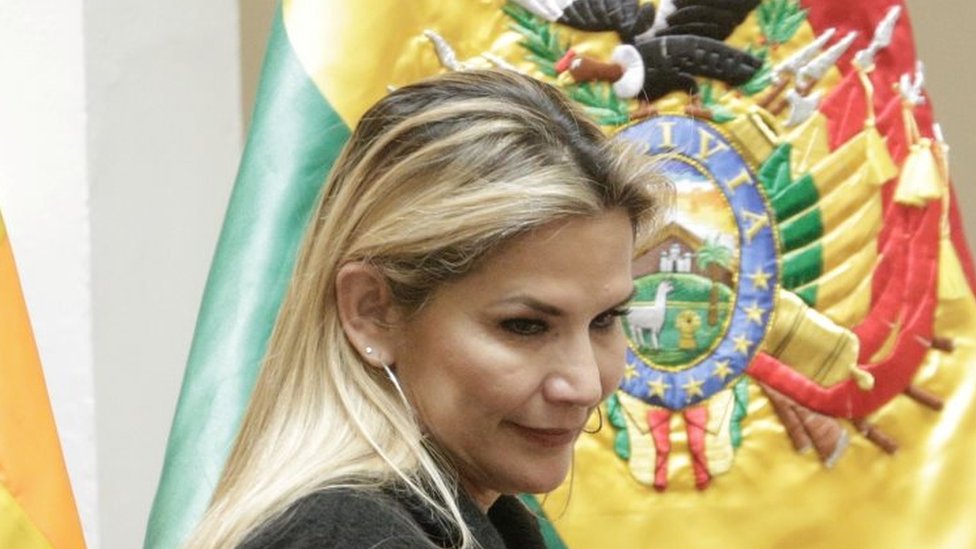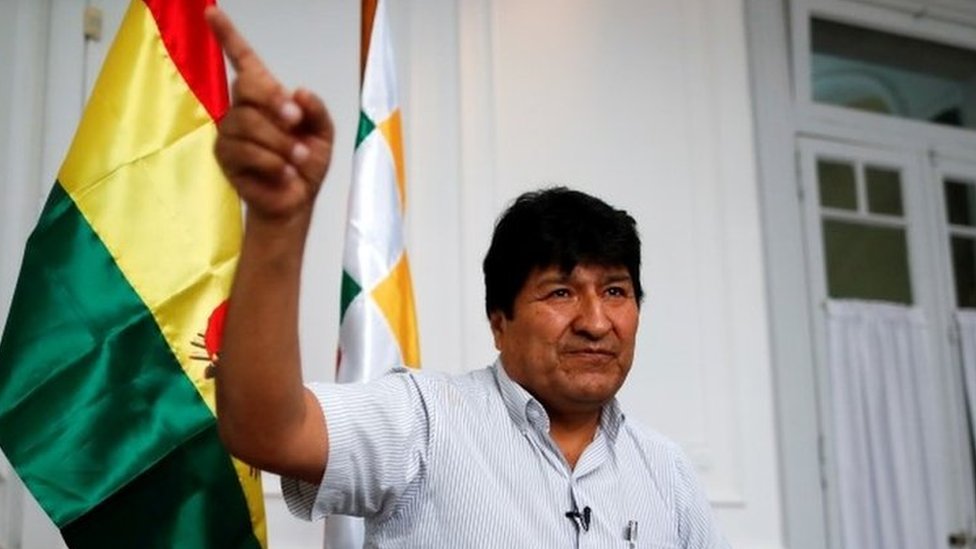This website uses cookies so that we can provide you with the best user experience possible. Cookie information is stored in your browser and performs functions such as recognising you when you return to our website and helping our team to understand which sections of the website you find most interesting and useful.
*:not([hidden]):not(style) ~ *:not([hidden]):not(style){margin-top:1rem;}
]]>
img{overflow:hidden;position:absolute;top:0;right:0;bottom:0;left:0;display:-webkit-box;display:-webkit-flex;display:-ms-flexbox;display:flex;-webkit-box-pack:center;-webkit-justify-content:center;-ms-flex-pack:center;justify-content:center;-webkit-align-items:center;-webkit-box-align:center;-ms-flex-align:center;align-items:center;width:100%;height:100%;object-fit:cover;}
]]>

image copyrightReuters
*:not([hidden]):not(style) ~ *:not([hidden]):not(style){margin-top:1rem;}
]]>
Bolivia's interim President Jeanine Áñez has quit the presidential election due on 18 October.
She said she did not want to split the vote and see the return to office of former President Evo Morales' Mas socialist party.
Mas candidate Luis Arce is leading in opinion polls, with Ms Áñez trailing in fourth place.
Ms Áñez was sworn in last year after Mr Morales resigned and left the country amid allegations of electoral fraud.
Mr Morales, who currently lives in Argentina, later said he was forced into exile by the police and the military.
Mr Morales served as Bolivia's president for almost 14 years, from 2006 to 2019, after winning three consecutive elections.
How did Jeanine Áñez explain her decision?
In a video message, Ms Áñez said: "Today I put aside my candidacy for the presidency of Bolivia, for the sake of democracy."
She said she decided to drop out because of "the risk that the vote is divided among several candidates and that as a result of that division, the Mas would end up wining".
"If we don't unite, Morales will return. If we don't unite, democracy loses," Ms Áñez added, without saying which candidate she would now be backing.

A poll published earlier this week suggested that Luis Arce could win the election in the first round.
Ms Áñez's leadership has been controversial from the start, the BBC's South America correspondent Katy Watson reports.
Mr Morales' supporters say she assumed the presidency after he was ousted in a military coup - and he is the rightful leader.



 Africana55 Radio
Africana55 Radio 
